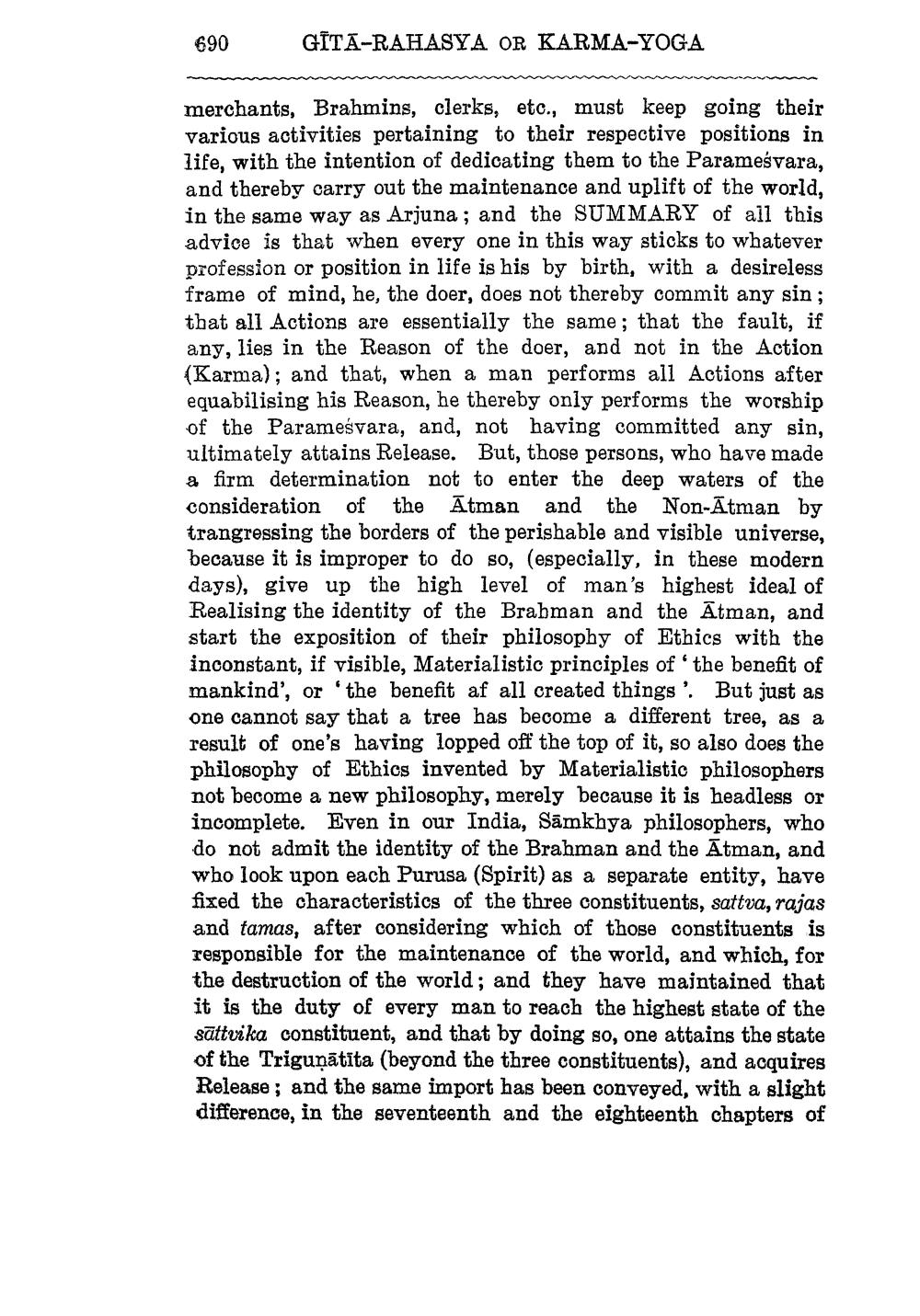________________
690
GITA-RAHASYA OR KARMA-YOGA
merchants, Brahmins, clerks, etc., must keep going their various activities pertaining to their respective positions in life, with the intention of dedicating them to the Parameśvara, and thereby carry out the maintenance and uplift of the world, in the same way as Arjuna ; and the SUMMARY of all this advice is that when every one in this way sticks to whatever profession or position in life is his by birth, with a desireless frame of mind, he, the doer, does not thereby commit any sin; that all Actions are essentially the same; that the fault, if any, lies in the Reason of the doer, and not in the Action (Karma); and that, when a man performs all Actions after equabilising his Reason, he thereby only performs the worship of the Parameśvara, and, not having committed any sin, ultimately attains Release. But, those persons, who have made a firm determination not to enter the deep waters of the consideration of the Atman and the Non-Ātman by trangressing the borders of the perishable and visible universe, because it is improper to do so, (especially, in these modern days), give up the high level of man's highest ideal of Realising the identity of the Brahman and the Ātman, and start the exposition of their philosophy of Ethics with the inconstant, if visible, Materialistic principles of the benefit of mankind', or the benefit af all created things'. But just as one cannot say that a tree has become a different tree, as a result of one's having lopped off the top of it, so also does the philosophy of Ethics invented by Materialistic philosophers not become a new philosophy, merely because it is headless or incomplete. Even in our India, Sāmkhya philosophers, who do not admit the identity of the Brahman and the Ātman, and who look upon each Purusa (Spirit) as a separate entity, have fixed the characteristics of the three constituents, sattva, rajas and tamas, after considering which of those constituents is responsible for the maintenance of the world, and which, for the destruction of the world; and they have maintained that it is the duty of every man to reach the highest state of the sättvika constituent, and that by doing so, one attains the state of the Triguņātīta (beyond the three constituents), and acquires Release; and the same import has been conveyed, with a slight difference, in the seventeenth and the eighteenth chapters of




